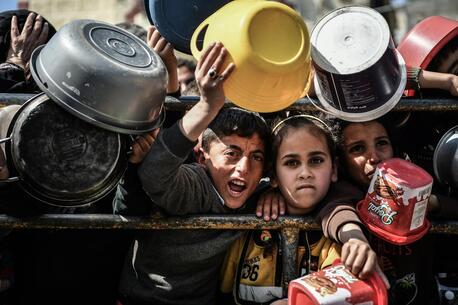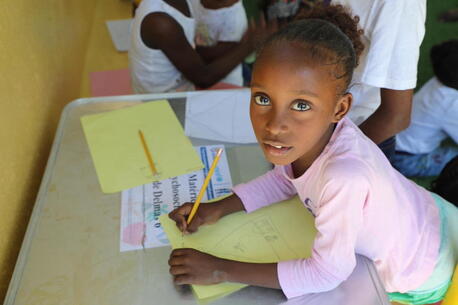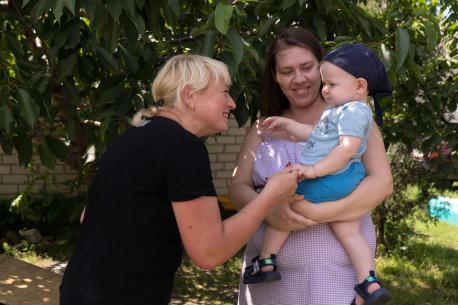
Helping Moms & Babies Thrive in Wartime Ukraine
A joint initiative by UNICEF and Ukraine's Ministry of Health sends trained nurses to visit families at home to give young children the best possible start in life.
Healthy babies need healthy parents: UNICEF and Ukraine's Ministry of Health support the well-being of both mother and child
Learning to care for a newborn is a challenge under the best of circumstances, but for mothers giving birth in wartime Ukraine, the stress factors can be overwhelming.
To help new moms and their growing babies thrive, the Home Visiting Program, a joint initiative by Ukraine's Ministry of Health and UNICEF, sends specially trained patronage nurses to visit families during the first three years of a child's life, providing crucial care and guidance. Nurses visit twice during the first month after delivery, then less rarely or on parents' demand. If a nurse notices any risks, they draw up a plan and visit the family more often.
A nurse pays attention, not only to the child, but also to the mother and her feelings. After giving birth, some of them are stressed because of the war, and bombs and missiles flying around. — Oksana Olkhovyk, visiting nurse in Pavlohrad, Ukraine
The home visits aim to improve on services provided by primary health centers, where a pediatrician and nurse may have only a short time to check on a child and answer all of parents' most pressing questions. During each meeting, the nurse asks the mother how she is feeling, how she has recovered from childbirth and how she finds communicating with her new child. With UNICEF's help, visiting nurses are also able to screen mothers for depression and provide emotional support.
"A nurse pays attention, not only to the child, but also to the mother and her feelings," says Oksana Olkhovyk, a visiting nurse in Pavlohrad, Dnipropetrovsk, eastern Ukraine. "After giving birth, some of them are stressed because of the war, and bombs and missiles flying around."
Visiting nurses provide an invaluable support system
Eight months pregnant with her third child in Dobropillia in the Donetsk region, Valeriia was forced to relocate suddenly as attacks on the city escalated. "Due to hostilities in our city, our maternity hospital was closed. I had to flee to the first available city so that I could give birth to my child." She and her two older children moved to Pavlohrad just weeks before baby Vladik's arrival.
As part of the Home Visiting Program, Olkhovyk stops by Valeriia's house frequently to provide information and encouragement. Before the Home Visiting Program was implemented, a nurse visit used to last 15 minutes on average; now it can last up to two hours if needed. Nurses are always available for calls, since mothers, especially those who are internally displaced, often just need someone to talk to.
Olkhovyk and her husband have become an invaluable support system for Valeriia and her children, helping them adjust to their new city and meet their basic needs.“We are like a family with them,” Olkhovyk says.
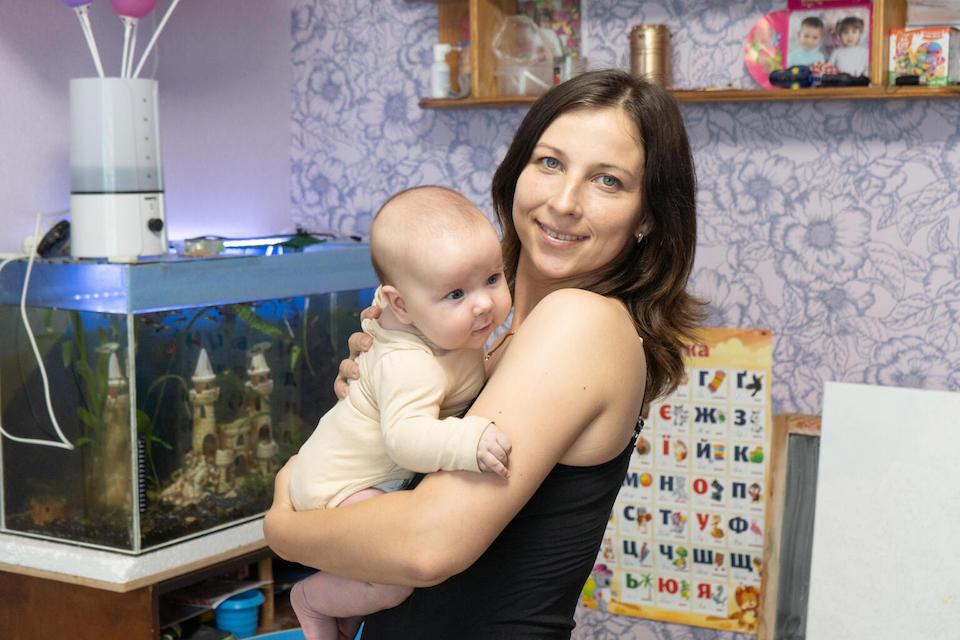
Staying calm in a war zone
When a chemical plant in Pavlohrad caught fire after being shelled, a local maternity hospital took expectant mothers and women in labor to a bomb shelter for their safety. Yulia, already the mother of two, was among them. "I was pregnant with my third child, a baby girl named Raisa," she says. "My first C-section was ahead."
In the early days after Raisa's birth, Yulia had almost no breast milk. Alla Stepanenko, a patronage nurse trained in obstetrics and preventive medicine, calmed her in labor and developed a special nutrition system for her to stimulate lactation.
Olena Dudnikova, a pediatrician who runs the Home Visiting Program in Pavlohrad, recalls a story of a woman who had difficulty communicating with her husband after giving birth, not realizing how much her life had changed. The nurse spent her entire weekend talking to her. For another young mother who was afraid she might eat something that could harm her baby, the nurse personally bought marshmallows and explained that nothing bad would happen from only one sweet treat.
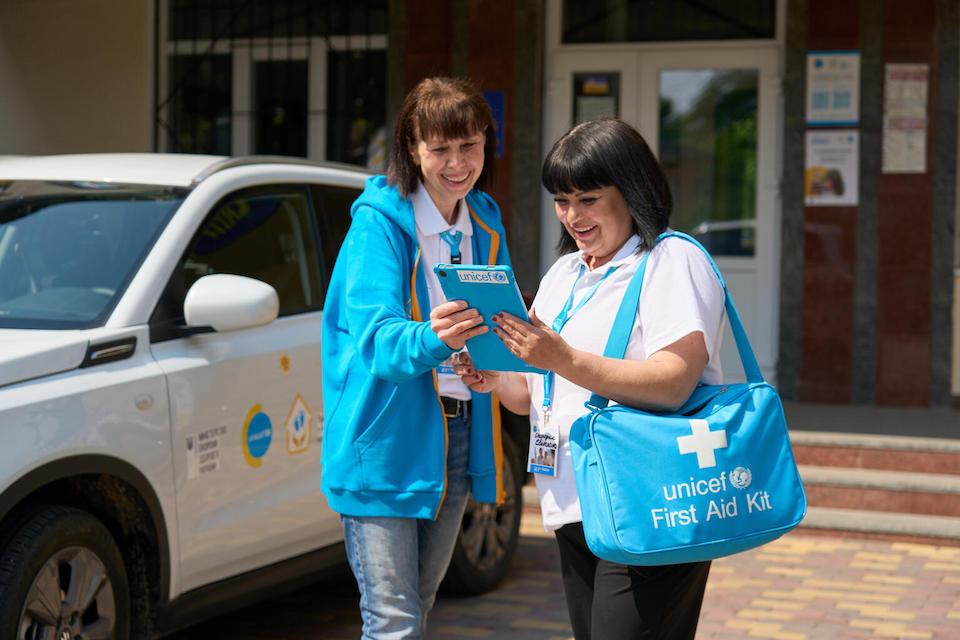
Strengthening families and communities caught in a humanitarian crisis
Already implemented in the Donetska, Zhytomyrska, Kirovohradska, Dnipropetrovska, Kyivska and Lvivska regions as part of a pilot project, the Home Visiting Program will expand to serve four more regions across Ukraine in 2023.
Primary Health Care Centers (PHCs) in Donetska were among the first to join the home care nurse training program in June 2021, when the first sessions for nurses and doctors were held. Today, amid the ongoing war, home visits have become even more valuable.
"Now, families with little children don't usually want to leave home and go to the doctor,” says Alina, a visiting nurse in Kramatorsk, Ukraine. “This is why home visits provide important support for families amid the war.”
Now, families with little children don't usually want to leave home and go the doctor. This is why home visits provide important support for families amid the war. — Alina, visiting nurse in Kramatorsk, Ukraine
The initiative is a lifeline for families struggling to raise healthy children under very difficult circumstances. It also helps to strengthen communities when they need each other most.
"We cooperate with education, medical, rehabilitation and social service centers," says Maria Filonenko, a pediatrician with 30 years' experience working with children who coordinates the Home Visit Program in Korostyshiv, Zhytomyrska, northern Ukraine. "Each patronage nurse can assess not only medical risks but also other psychosocial issues, and thus provide help. There is also an interaction between families, where one family can share tips with another."
Help UNICEF save and protect Ukraine's most vulnerable children and families. Your tax-deductible contribution can make a difference. Please donate today.

